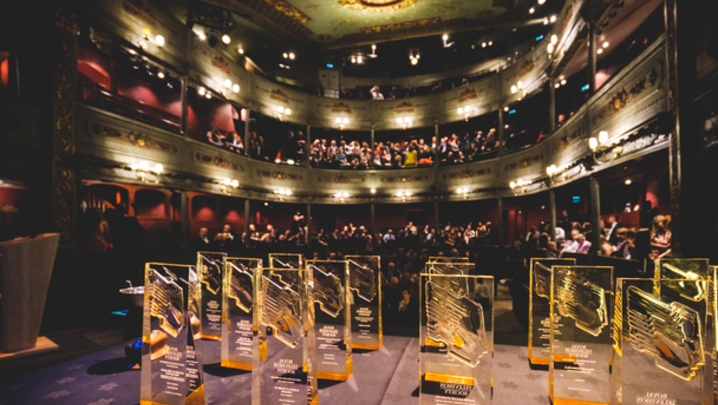TV production is in rude health in and around the city –but can the good times last? Matthew Bell reports.
Television has never had it so good in Bristol, with indies and talent flocking to the city to meet the demands of soaring production.
According to new research from the University of the West of England, “Go West”, there are currently 197 creative companies in the Bristol city region, supporting 2,500 permanent jobs and thousands more freelancers.
Sky, Netflix and All3Media have invested in the city’s indies, and Channel 4 has opened one of its two regional Creative Hubs in Bristol.
Speaking at an RTS West of England event in July, Tatjana Humphries from inward investment agency Invest Bristol and Bath identified some of the key reasons for the production bonanza, pointing to the city’s “growing” reputation: “Global content that’s being produced in the city region is certainly helping to attract businesses… The recent investment from Netflix, Channel 4 and others is [also] helping.”
Bristol Film Office’s Natalie Moore said that, historically, Bristol has long been a favoured filming location, but “on the back of Covid, the boom we’ve experienced in the last 12-15 months has been incomparable”.
Since early 2021, she continued, there has been a 250% increase in the number of location filming permits issued by the office. “Normally in the late winter and spring months we’d have maybe four TV dramas working on location – we had 13 active in the city in the first four months of this year.”
Partly this shooting surge is a catch-up exercise, a consequence of the backlog from the first coronavirus lockdown in spring 2020, but Moore said there was no sign that production was “going to slow down hugely”.
“There’s so much work available,” said editor Stuart Davies, who helps to run the Bristol Editors Network.”
The Covid-19 epidemic has brought behind-the camera talent, keen to escape London, to Bristol, reckoned Rachel Drummond-Hay, MD of factual indie Drummer TV. She added that the city’s production base has widened in recent years: “It’s not just animation and natural history.”
The “Go West” research shows that Bristol now has many factual indies, post-production and facilities houses and a growing branded/corporate production sector. And many dramas are shot at the city’s Bottle Yard Studios, on location and in nearby Cardiff, which is also enjoying a production boom.
The result, said Drummond-Hay, is that there’s now a skills shortage in the west country: “It makes freelancers king at the moment.”
The panel were united in the belief that building a sustainable future for production in and around Bristol requires a reliable talent pipeline.
Mel Rodrigues, founder of Gritty Talent, a Bristol media-tech company that connects creatives with the TV industry, works to unearth new talent. “In Bristol now you can progress your career,” she said, arguing that moving to London was no longer a necessary step to get on the first rungs of the TV ladder.
She added: “Widening and nurturing that [talent] pipeline will be critical to continuing the boom.
“We have to take more risks on giving people chances in genres they haven’t worked in… [and] find opportunities that are maybe not obvious but would help them grow their skills in this region. We will only keep on booming if we have that diversity of thought and experience.”
Career progression, continued Rodrigues, is also important. “We need to move [people] up so [new] people can come in.”
The Bottle Yard Studios is located in the south of the city which has “pockets of massive social deprivation”, explained Bristol Film Office’s Moore. “We want to take even more of the employment opportunities that are coming into the studio and directly target people in South Bristol. There is work underway with a number of partners involved with Bristol’s UNESCO City of Film status to help ensure this happens consistently.”
Rodrigues added: “There are lots of [groups of] people who are under-represented in TV… If you look at Bristol’s Somali community and British-African diaspora, it’s large in volume but the numbers of people coming into TV and wider creative jobs are not there.”
‘Booming Bristol: How do we build on the success of our world-class content-makers?’ was an RTS West of England event on 21 July, chaired by Lynn Barlow and held in partnership with Invest Bristol and Bath.








